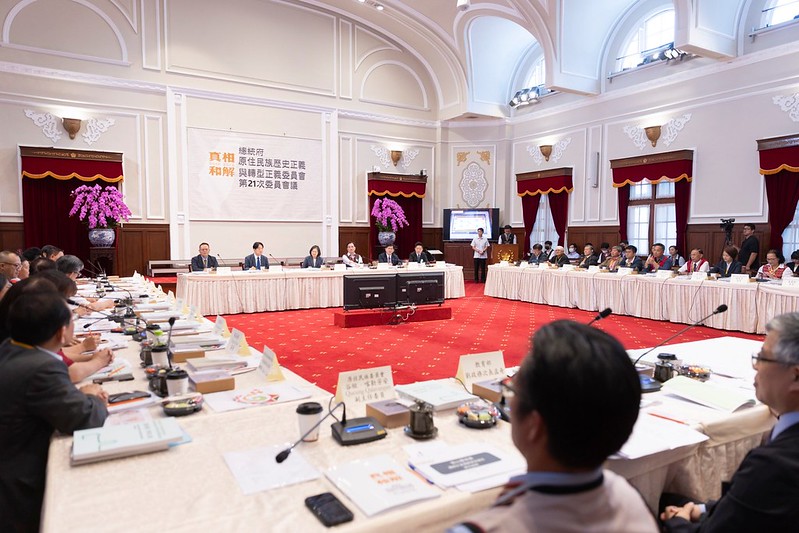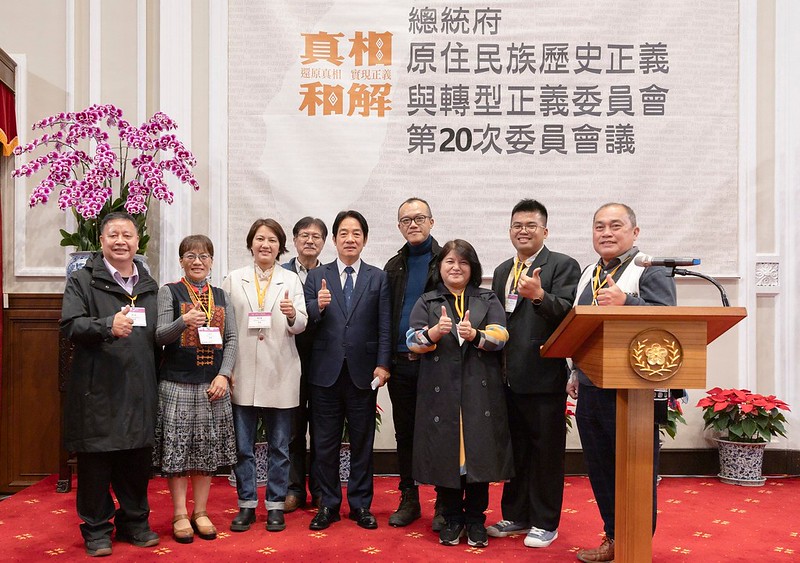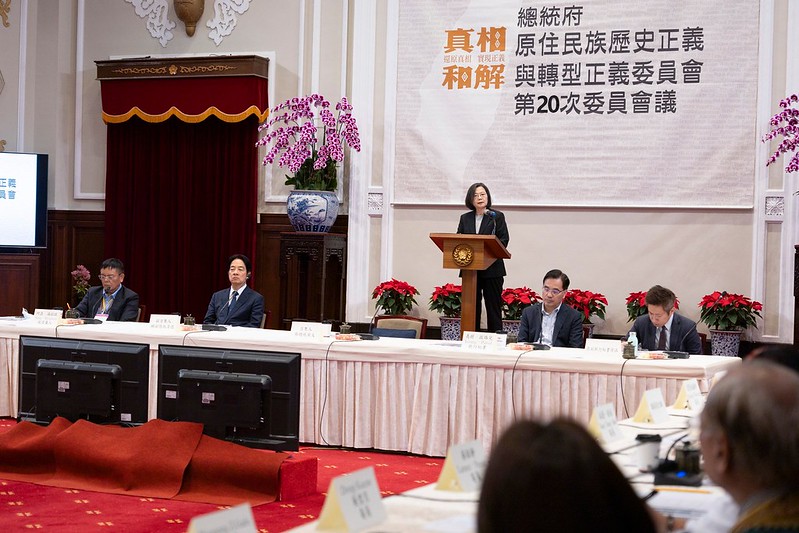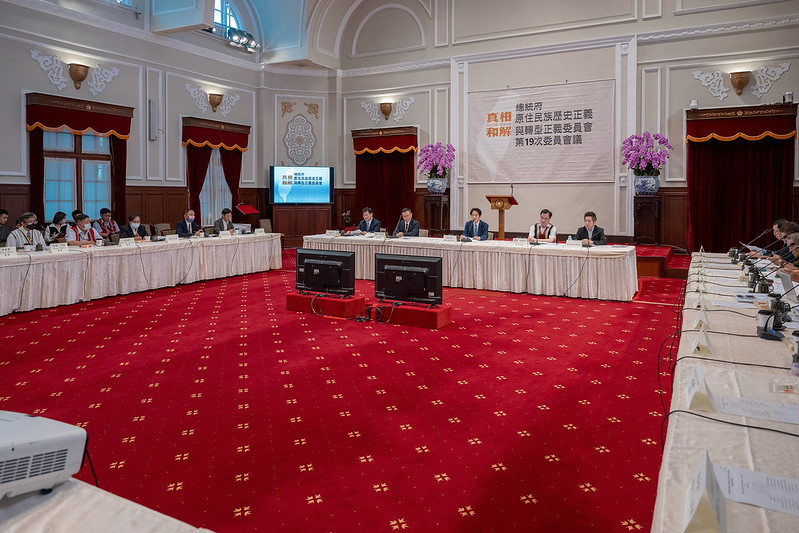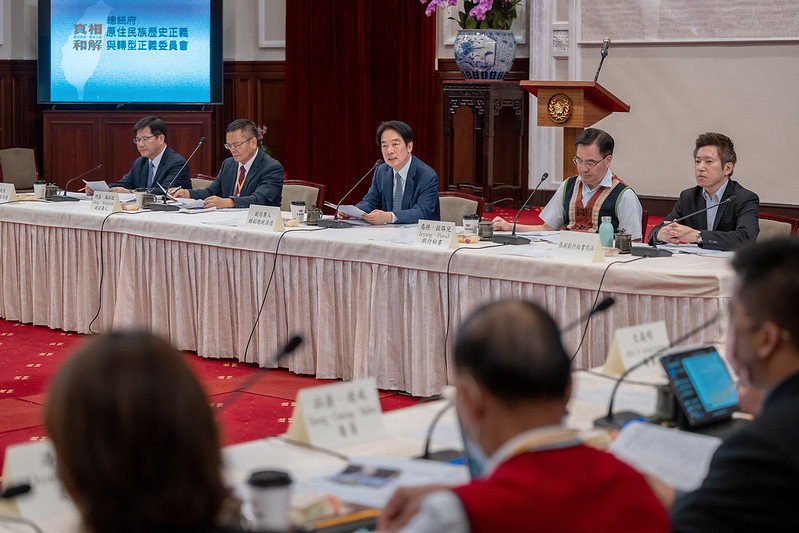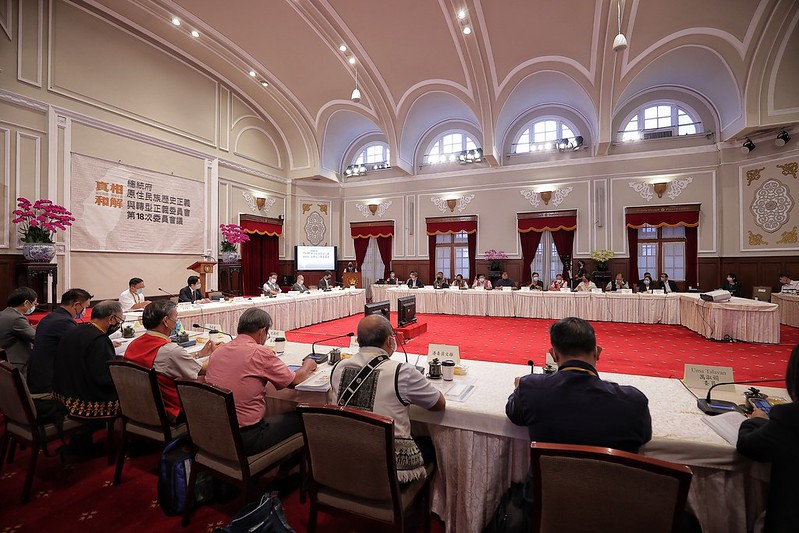News & activities
 News releases
News releases
On September 20, President Tsai Ing-wen convened and presided over the 18th meeting of the Presidential Office Indigenous Historical Justice and Transitional Justice Committee, and was accompanied by Vice President Lai Ching-te as deputy convener at the one-and-a-half-hour meeting.
The meeting began with a report on the status of work on major historical events involving indigenous peoples, with presentations by Subcommittee on Reconciliation Chair and Vice Minister of Culture Lee Lien-chuan (李連權), Subcommittee on History Chair and Deputy Minister of Education Tsai Ching-hwa (蔡清華), and Subcommittee on Land Matters Chair and Council of Indigenous Peoples Deputy Minister Qucung Qalavangan. A video was then shown on the results of the Ministry of Culture's efforts over the years to recreate the historic site of the Mudan Incident.
President Tsai began her remarks following the report by thanking the Ministry of Culture, Ministry of Education, and Council of Indigenous Peoples for their collective efforts to restore various facets of Taiwan's diverse history. The president said that the Mudan Incident historic site recreation project is a cooperative effort by indigenous peoples and the government at all levels, allowing the Mudan Incident's rich human and cultural landscape to be seen from the perspective of the tribal community involved. As her family comes from Pingtung County, where Mudan is located, President Tsai noted her great concern about the Mudan Incident, and thanked everyone who participated in the recreation process.
President Tsai also asked the Council of Indigenous Peoples to continue to reveal the truth about major historical incidents involving indigenous peoples, using the book series recounting those incidents as a foundation, to help people throughout society develop a better understanding of Taiwan. The president also asked the Ministry of Culture to be sure to respect the cultural norms and wishes of indigenous communities when registering cultural assets and preserving and recreating historic sites to allow those communities to talk about their history in their own way, using their own languages.
President Tsai expressed her belief that in addition to recreating historic sites, education is highly important. The president asked the Ministry of Education and the Subcommittee on History to continue to include more diverse historical perspectives when designing future curricula, teaching materials, lesson plans, and teacher training programs so that these perspectives can be truly understood and implemented on school campuses. The president noted that using video in the report presentation allows the public to gain a more concrete understanding of Taiwan's history, and grasp key moments throughout this historical timeline more quickly. She added that for some time now, the relevant government agencies and indigenous communities have been working together, and that we continue to make progress.
President Tsai also asked the Ministry of Culture and the Subcommittee on Reconciliation to make a photographic record of the research surveys, recreation of historic sites, preservation of cultural assets, and educational reforms mentioned during the meeting. The president expressed her belief that recording and sharing images can spur greater understanding and more dialogue, and allow diverse historical perspectives to truly become important shared assets of Taiwanese society. Although this is a difficult task, the president said, we will continue our efforts.
Vice President Lai then took over from President Tsai to preside over the end of the meeting. In his closing remarks regarding proposals from various committee members at the meeting, the vice president thanked Minister of Culture Lee, Deputy Minister of Education Tsai, and Minister of the Council of Indigenous Peoples Icyang.Parod for their presentations. Vice President Lai added that, in accordance with Minister Icyang.Parod's statement, the other written proposals will be assigned according to the principles on which they are based, and forwarded to the legislature or relevant Executive Yuan agencies for assistance, with the relevant agency then following up with reports to the respective committee members.
